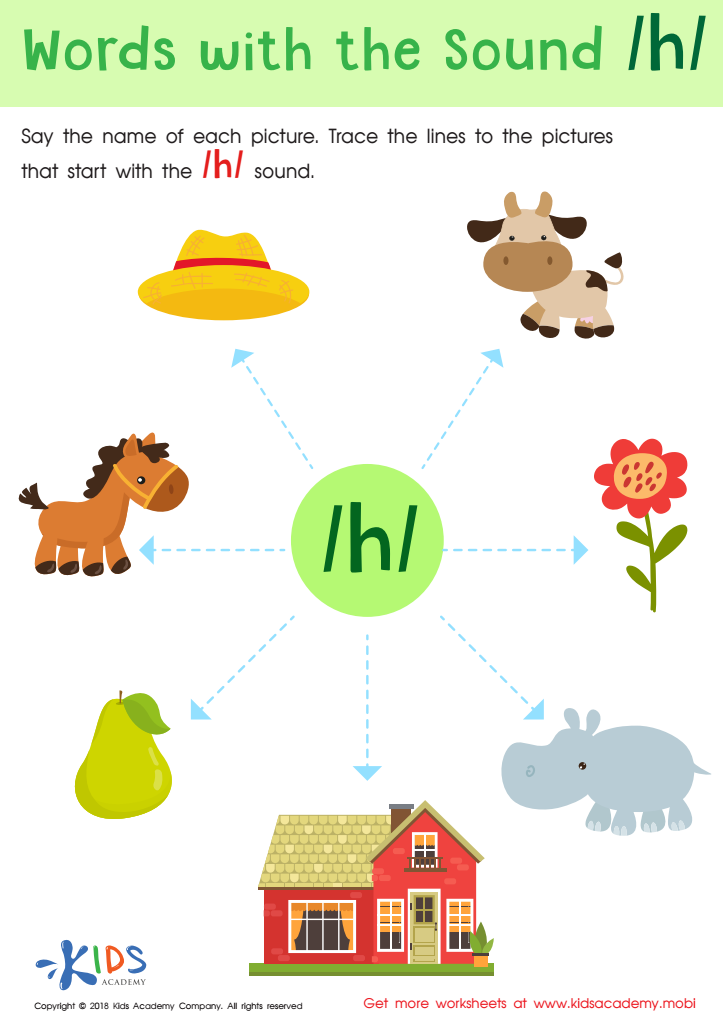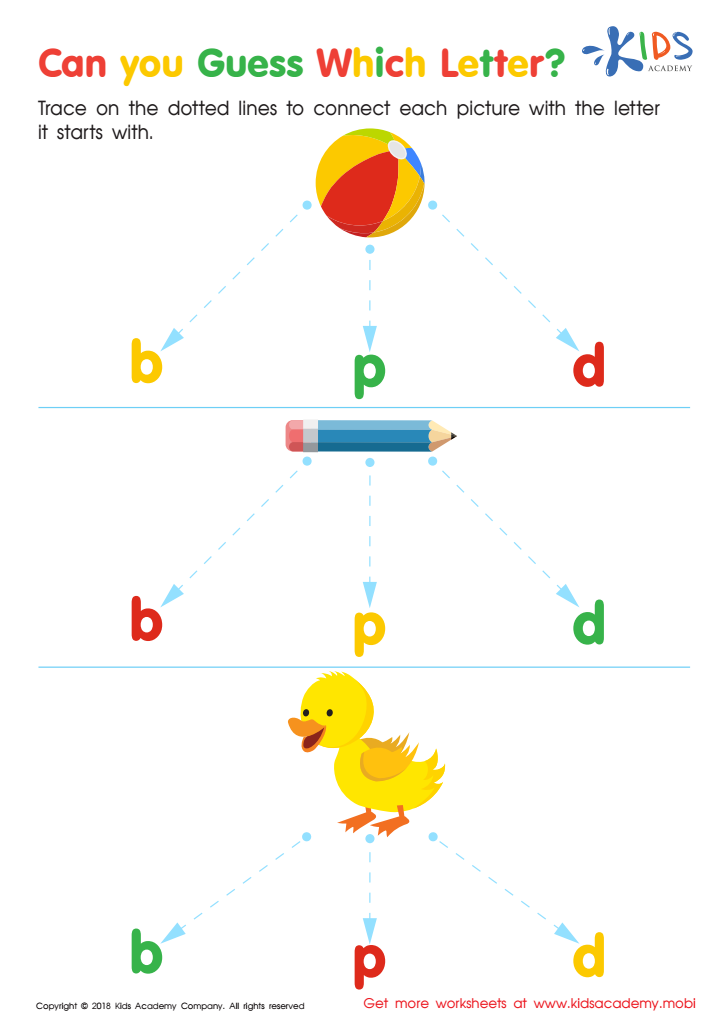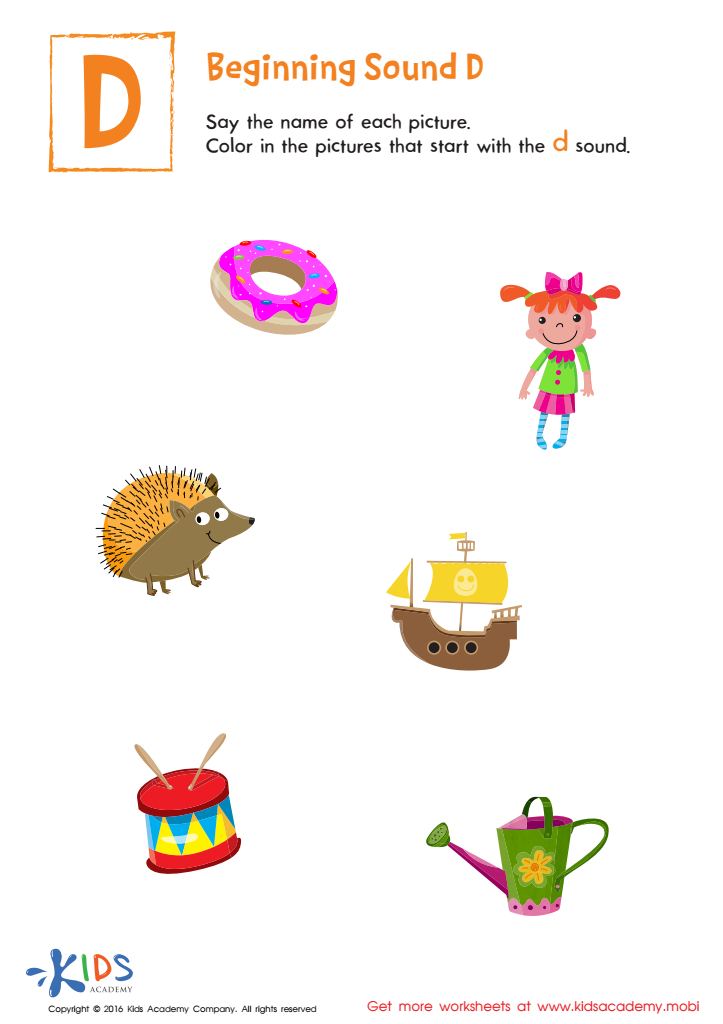Vocabulary expansion Normal Beginning Sounds Worksheets for Ages 3-4
4 filtered results
-
From - To
Discover our engaging Vocabulary Expansion Normal Beginning Sounds Worksheets, designed specifically for children aged 3-4. These fun and educational worksheets focus on identifying and practicing initial sounds of words, an essential early literacy skill. With bright illustrations and age-appropriate challenges, these activities help young learners improve their phonics awareness, boost vocabulary, and strengthen foundational reading skills. Perfect for both classroom and home use, our worksheets ensure children remain engaged while developing a love for learning. Give your child a head start on their educational journey with our expertly crafted beginning sounds worksheets. Unlock the joy of reading today!


Words with sound h Reading Worksheet


Can you Guess Which Letter? Worksheet


Words with sound f Reading Worksheet


Beginning Sound D Worksheet
Vocabulary expansion and recognizing normal beginning sounds are crucial for children aged 3-4 as they lay the foundation for essential language and literacy skills. When parents and teachers focus on vocabulary building, they help children enhance their understanding of the world, improving their ability to express thoughts, emotions, and needs with clarity. A broad vocabulary supports cognitive development, enabling kids to follow instructions, comprehend stories, and engage in conversations, which boosts their social skills and self-confidence.
Identifying beginning sounds, also known as phonemic awareness, is another vital component of early literacy. It helps children understand that words are composed of individual sounds, a key concept for reading and spelling. For example, recognizing that the word "cat" starts with the /k/ sound helps children connect sounds to letters. This sound-letter mapping is fundamental for decoding new words and fosters independent reading skills.
Engaging young learners in activities that nurture vocabulary and sound recognition – like reading aloud, playing rhyming games, or singing alphabet songs – ensures a smoother transition to more advanced literacy challenges. Furthermore, a strong language base in early childhood can lead to better academic performance, setting the stage for lifelong learning and success. Thus, teachers and parents play a critical role in nurturing these early skills.
 Assign to My Students
Assign to My Students















